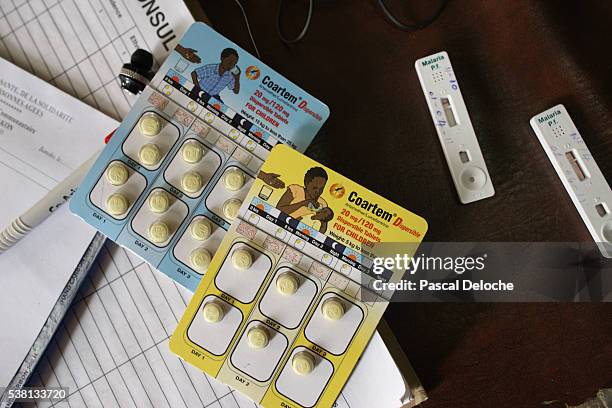In a major breakthrough for global child health, the world’s first malaria treatment specifically formulated for newborns and very young children has received official approval and is expected to be rolled out across malaria-endemic African countries within weeks. Developed by pharmaceutical company Novartis in partnership with the Medicines for Malaria Venture (MMV), the new drug—branded as Coartem Baby or Riamet Baby—addresses a long-standing treatment gap that has put millions of vulnerable infants at risk.
Until now, babies weighing less than 4.5 kg (around 10 pounds) had no approved antimalarial drug designed for their specific physiological needs. Instead, they were administered modified versions of treatments intended for older children, which posed significant health risks due to differing liver function and drug metabolism in infants. This dosing uncertainty raised the possibility of accidental overdoses or under-treatment.
Malaria continues to be one of the deadliest infectious diseases globally, with 597,000 deaths recorded in 2023, according to the latest available data. Shockingly, around 75% of these deaths were children under five, the majority of whom lived in sub-Saharan Africa—regions with some of the highest malaria transmission rates in the world.
The approval of Coartem Baby by Swiss health authorities is being hailed as a life-saving milestone. Novartis has committed to distributing the medicine on a largely not-for-profit basis, improving access for low-income families and overstretched healthcare systems. Clinical trials and assessments involved eight African nations, which are now expected to be among the first to benefit from the new treatment’s deployment.
Vas Narasimhan, CEO of Novartis, emphasized the significance of the approval:
“For more than three decades, we have stayed the course in the fight against malaria. With Coartem Baby, we are proud to finally offer clinically proven care for the smallest and most vulnerable patients.”
Martin Fitchet, CEO of MMV, highlighted the importance of tailored treatments:
“This approval offers a vital addition to the antimalarial toolbox. It closes a dangerous gap in treatment options for newborns and infants and moves us closer to our shared goal of malaria elimination.”
Public health experts also welcomed the development as a turning point in child survival and equitable access to healthcare. Dr. Marvelle Brown of the University of Hertfordshire noted that children with weakened immune systems, such as those born with sickle cell disease, are especially at risk, making this formulation even more critical.
With the World Health Organization continuing to support malaria eradication goals, and with rising interest in equitable drug access, Coartem Baby’s approval represents a timely advance in the global health response. The medicine is expected to play a vital role in reducing malaria-related mortality among infants in Africa and beyond.














Leave a comment